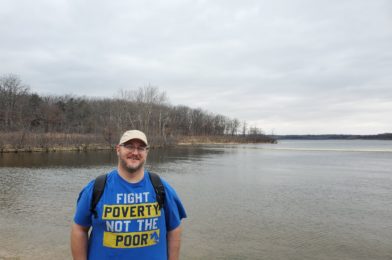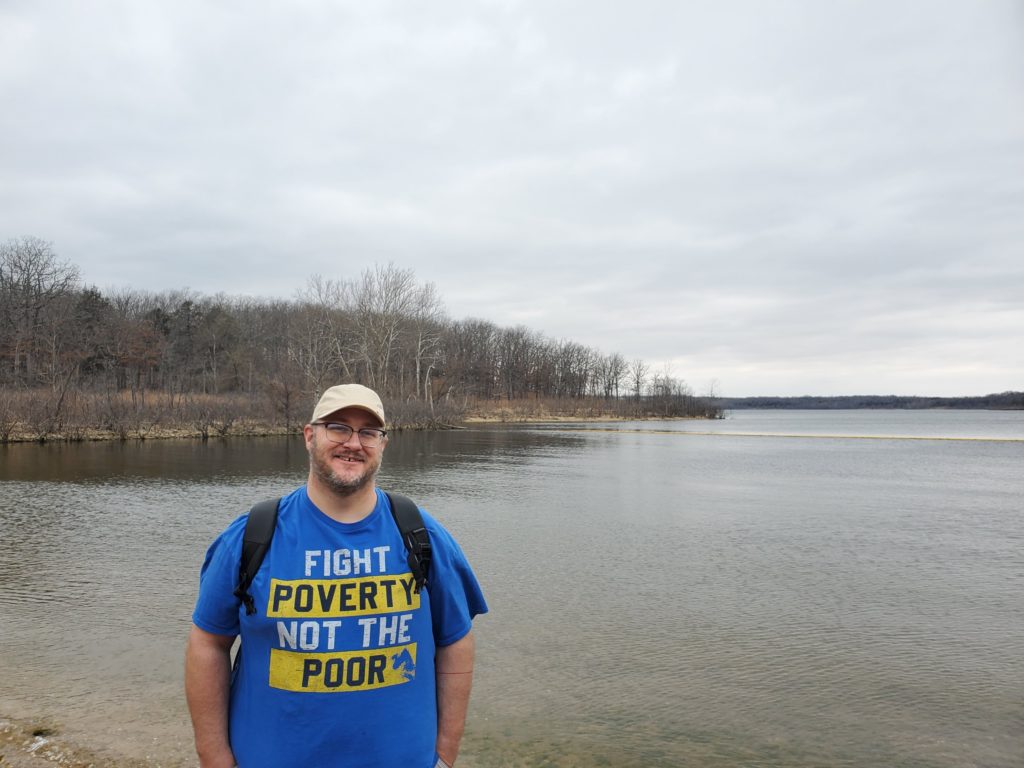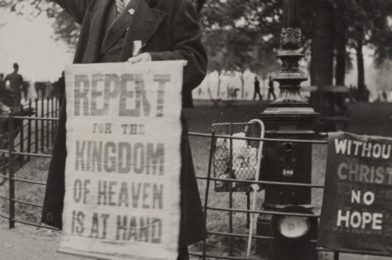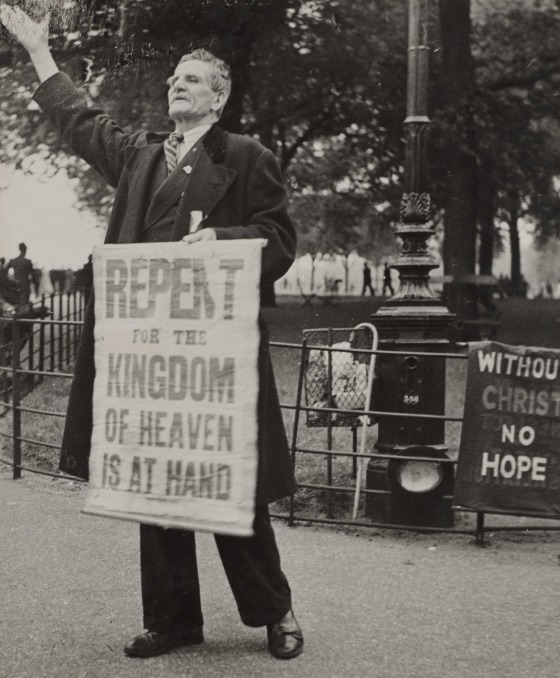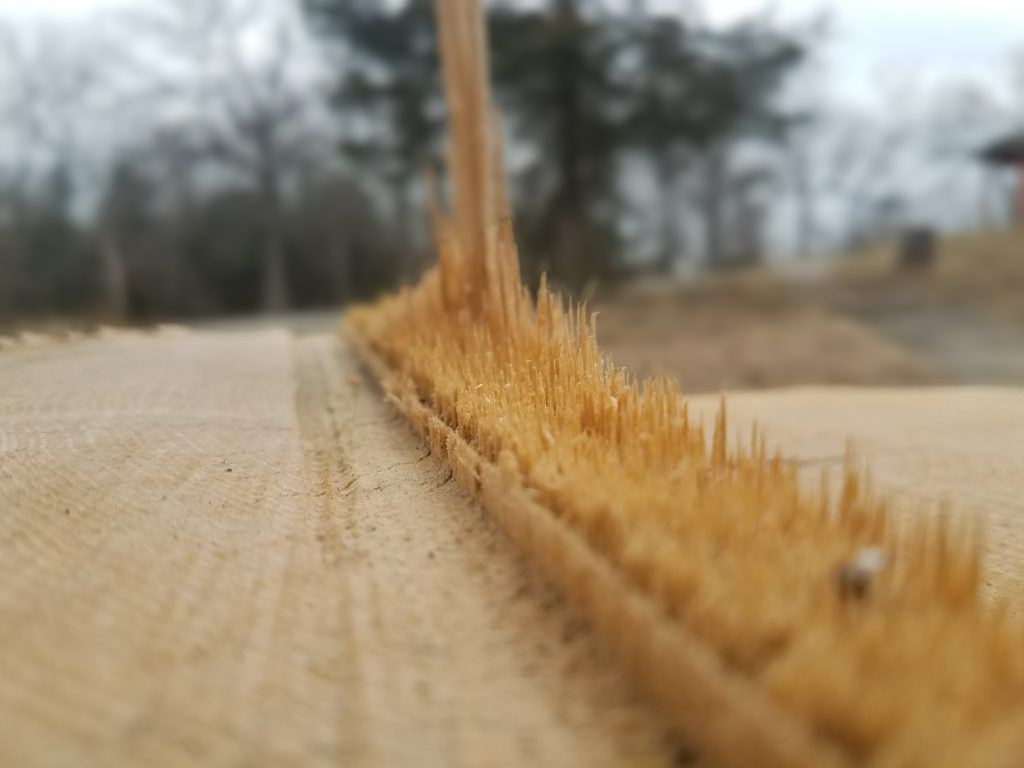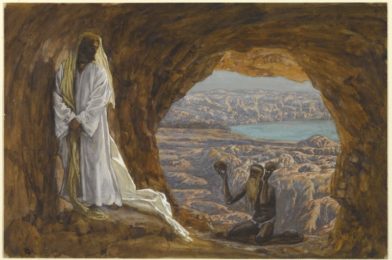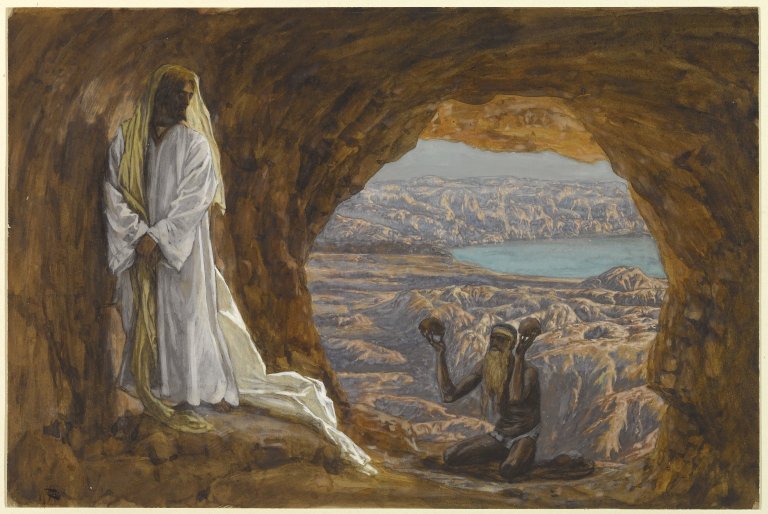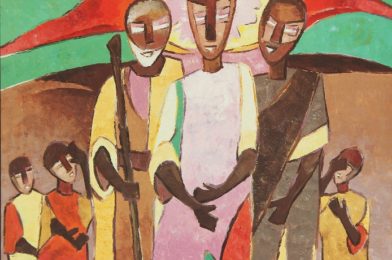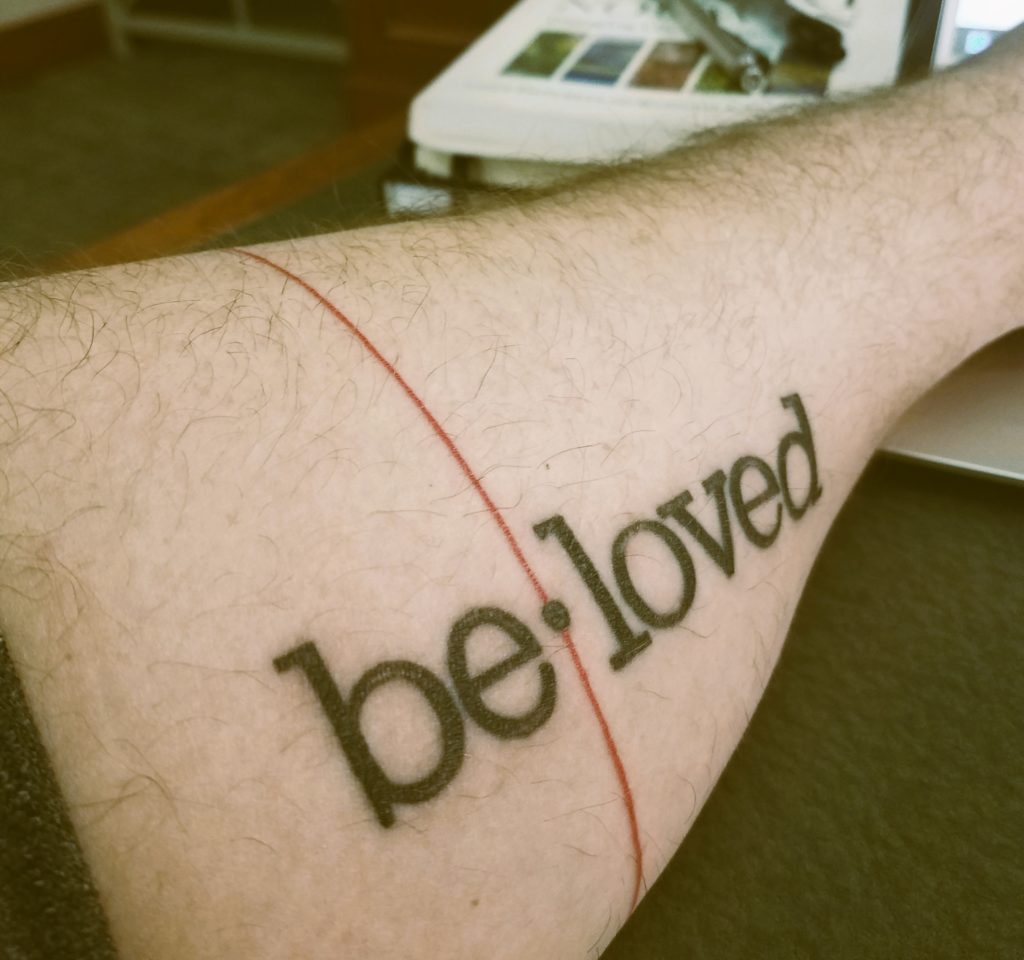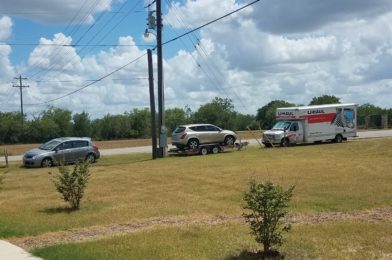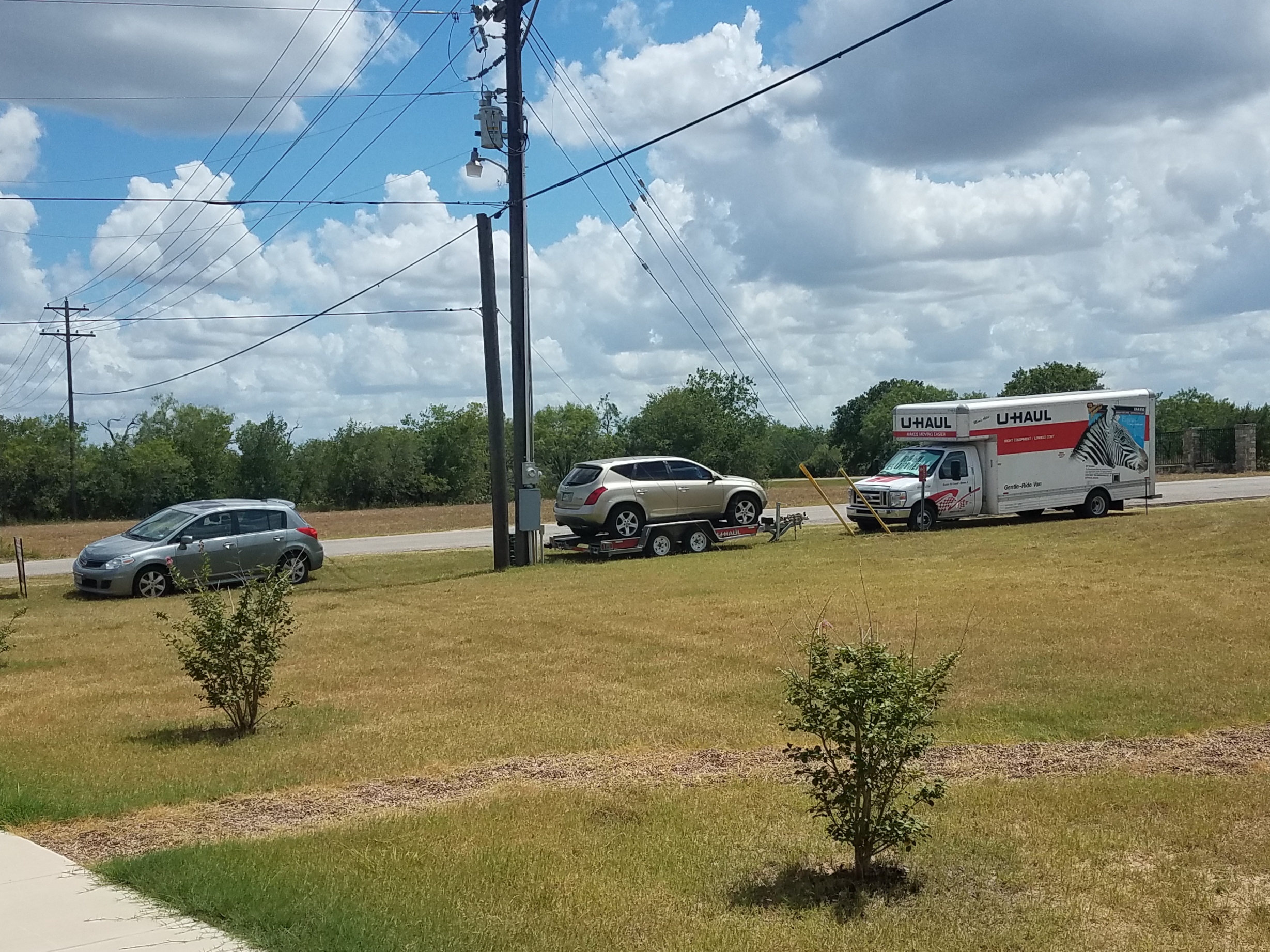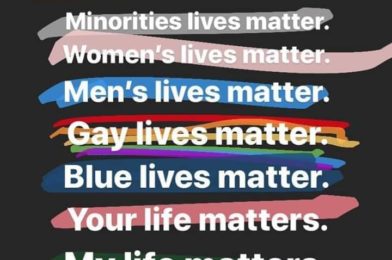One of the downfalls to being a Christian is that we’re not always told how difficult the walk with Christ will be. We’re not given the nitty-gritty details about how we’re going to suffer – not so much in that persecution/martyr sense – but in the little things of life: avoiding excesses, loving the unlovable, speaking truth in all circumstances, putting Jesus first. If, as people showed interest in this walk with Jesus, we told them about all this suffering they will face, they would more than likely walk away because it doesn’t sound all that fun. Most people come to God because they’re suffering already – the last thing they need to know is that they’ll have more of it! While it’s not always fun, I would gladly say that in the end, the walk with Christ is worth the small sufferings we must endure.
We endure these sufferings because we’re called to live in a different world and time; we’re called to live in the reality of God’s reign on earth that is both now and not yet, a life oriented toward God’s future. Paul writes in Romans 12:2, “Do not be conformed to this world, but be transformed by the renewing of your minds…” – a call for a new way of thinking and living that, though we may indeed suffer a little (or a lot), we will find peace and reward in the midst of that new living.
I’ve learned that one of the greatest demands of this call to non-conformity and one of the greatest sources of suffering lies in the example Christ gave us for living in this world: that of self-sacrifice. The transformed life toward non-conformity is sacrificing the entirety of our life – body and mind and spirit – as an expression of devotion to God. This self-sacrifice isn’t done out of compulsion nor for appearances; more than likely, self-sacrifice is done in spite of these things. The world mocks self-sacrifice because when it’s done right, you don’t get ahead…you don’t win…you don’t succeed materially; you quite literally live in worldly suffering. Self-sacrifice is an active choice to live the transformed, renewed life that goes against the ways and workings of the world.
It is in living this self-sacrificing, non-conforming, transformed life that we can, as Paul says, “discern what is the will of God – what is good and acceptable and perfect” (Rom. 12:2). In this discernment we assess and evaluate our lives and the things in it to determine God’s will for us, for our next step, for our direction in and through this world. We discern where we’ll work and how that expresses our call to vocation. We discern where we’ll live and how that expresses our call to evangelism. We discern where we’ll attend church and how that expresses our call to fellowship, relationship, and discipleship. But we also discern little things as transformed non-conformists: am I to give to this organization? Is consuming this media an expression of Godly living? Can I drink a glass of wine? Discernment is ultimately asking what is most pleasing (good/acceptable/perfect) to God and how we can live that out in our daily lives as we love God and neighbor.
“I was much more afraid in Montgomery when I had a gun in my house. When I decided that I couldn’t keep a gun, I came face-to-face with the question of death and I dealt with it. From that point on, I no longer needed a gun nor have I been afraid. Had we become distracted by the question of my safety we would have lost the moral offensive and sunk to the level of our oppressors.”
– Martin Luther King, Jr. (The Autobiography of Martin Luther King, Jr.)
Since my parents visited me and my spouse in Missouri in 2020 I had been praying and reading to discern the will of God in my life concerning the firearms that I own. Why? All I can really say is that the Spirit moved me in that direction and called me to question why I wanted/needed those weapons in my life and in my home. Through this discernment process I found that what would be most pleasing to God was that I remove these weapons from my life. I recognize that this doesn’t conform to the ways I have lived my life, nor does it agree with our extended family’s ways of living; and truthfully it’s been a very difficult discernment process for me to come to terms with this calling, but God’s call to self-sacrifice – to being transformed – is often uncomfortable, disagreeable, and difficult to bear.
Growing up I learned from my dad and grandpa that our family hunted out of necessity. While certainly not dirt poor, we acknowledged that in our poverty, hunting was a way to find food to sustain our family’s life and well-being. For many years the meat we hunted supplemented the food we bought and I found pride and satisfaction in that. As I have been reflecting on my life as a gun owner and hunter I have realized that my use of firearms has not been for sustaining our family, rather, my use of firearms has been solely for sport disguised as family preservation. The countless prairie dogs and birds I killed were never placed in our freezer, they were killed for summer fun. The deer and elk I killed were never needed nor necessary kills for feeding our family as we always had enough. As much as I’ve tried to deny it and argue against it, my hunting has been purely for sport, an affront to my family heritage of hunting and a spit in the face of God for dishonoring creation. God has shown me this lie that I have been telling myself and the wrongs that I have committed against God’s beloved creation. I am hurt that I have deceived myself for so long, ashamed that I defended my actions, and saddened of the destruction and death I have caused.
The first school shooting I remember was at Columbine High School in Littleton, Colorado, in 1999; within 45 minutes the perpetrators murdered twelve fellow students and one teacher before taking their own lives. That wasn’t the first time a shooting occurred at a school and it certainly hasn’t been the last, and the uptick in mass shootings in public places has become a near constant in my American experience. All-too-often I have witnessed news reports of some individual expressing their feelings with a firearm in their hands. The loss of life I have witnessed and the fact that our society allows it to continue is an affront to our Creator who demands from us more than mere thoughts and prayers.
Over the course of my lifetime I have lived in the shadows of wars and in rumors of wars: the Cold War with the former Soviet Union, the arms race with China, the 1980’s Iran skirmish, the 1990’s Gulf War, the 2000’s Iraq and Afghanistan wars, and most recently the saber-rattling between the United States and Russia. Violence and war on the global stage has been a near-constant for my entire life. In my travels to Kosovo, Mexico, and Budapest I have witnessed firsthand the destruction and death which firearms have waged on God’s creation. I have listened to stories of families evicted with AK-47’s pointed at children. I have stood at the foot of a mass grave where an entire village was executed by firearms. I ran my fingers across walls riddled with bullet holes. I saw tears shed as families recounted the systematic ethnic genocide they endured. I have been living in a world of violence carried out by firearms. Certainly this could have happened with rocks or knives, but the reality is that it has happened with firearms. The human heart is prone to evil and causes this violence, but when armed with readily-accessible weapons of death, evil is able to cause more evil.
As I’ve been learning to wholeheartedly walk in the Way of Christ I have wrestled with what it truly means to live into his words spoken from the mount: “You have heard that it was said, ‘You shall love your neighbor and hate your enemy.’ But I say to you, Love your enemies and pray for those who persecute you…” (Matthew 5:43-44). How can I love my enemies…how can I love those who would seek to harm me or my family…how can I live out this calling from God in my life? Certainly I can face the violence that will come at me with violence – I can use my firearms to protect me, my family, and our property – but am I called to that? Can I truthfully love my neighbor if I carry a weapon for protection?
I have been praying and seeking counsel on how I personally can best respond to the violence that will come my way. My American culture tells me to get a handgun and keep it at my bedside; but is this what’s best for me? I certainly have the right to bear arms and stand my ground, but do I have the right to take another life to preserve my own? Does my life, or my spouse’s life, carry more weight and worth than those who may cause us harm? Can I love my neighbors, my enemies, my persecutors while pointing a gun at them?
The Reign and Way of Christ started with vulnerability: as an infant in a manger. Christ certainly could have come bearing sword and shield but he came to us as an infant refugee instead. Jesus chose non-violence as a way of life, not idly sitting by and allowing violence to happen, but refusing to use violence to get rid of violence. In his life he insisted that he would rather die than kill. He would rather love his enemy than harm them. A life of love has no room for killing; a life of love lays down its ‘rights’; a life of love seeks another way. I can discover and learn non-violent ways to protect my life and the life of those around me while preserving the life of the one who seeks to harm me, and if I die in the midst of this, then I die.
Walking in the Way of Christ has called me to live a transformed life, a life of non-conformity, a life that will make me and those around me uncomfortable, uneasy, unwilling to accept. Walking in the Way of Christ has called me to live a life of sacrifice. I am sacrificing my known way of life – safety behind a firearm – for the unknown of life with no firearms. I am sacrificing my family’s heritage and tradition for the unknown. I am sacrificing relationships for the unknown. But I have discerned that the will of God for me is to lay down my arms because this would please my Creator the most and God’s approval is what would please me the most.
I inherited two firearms: a 20 gauge shotgun and a 30-30 rifle. As these are ‘heirloom’ guns and have meaning for our family I humbly returned them to my dad. While I have treasured these gifts and am beyond honored that he chose them for me, I have been called to live without them in my life. Three other firearms I owned I had disarmed and donated to RawTools – an organization based in Colorado Springs and Philadelphia which lives out Isaiah 2:4 by turning weapons into gardening tools. This organization not only physically reshapes weapons of violence, but they provide outreach to communities across a country steeped in gun violence, teaching non-violence, conflict resolution, and perspectives of peace.
The walk with Christ is difficult and challenging…it forces us to live a life that most others would reject…it forces us to choose between Christ and conformity. I choose the self-sacrificing, non-conforming life because I have hope that it will help realize God’s dream for this world. I choose the self-sacrificing, non-conforming life because I trust that God will sustain me when I’m hungry, will protect me when I’m in danger, will bring peace when there is violence. I choose to lay down my arms and take up the cross because this is the most pleasing, most good, most acceptable, most perfect way I can live my life for the reign of Christ in this world. This is God’s calling on my life.
much love.
sheth.







